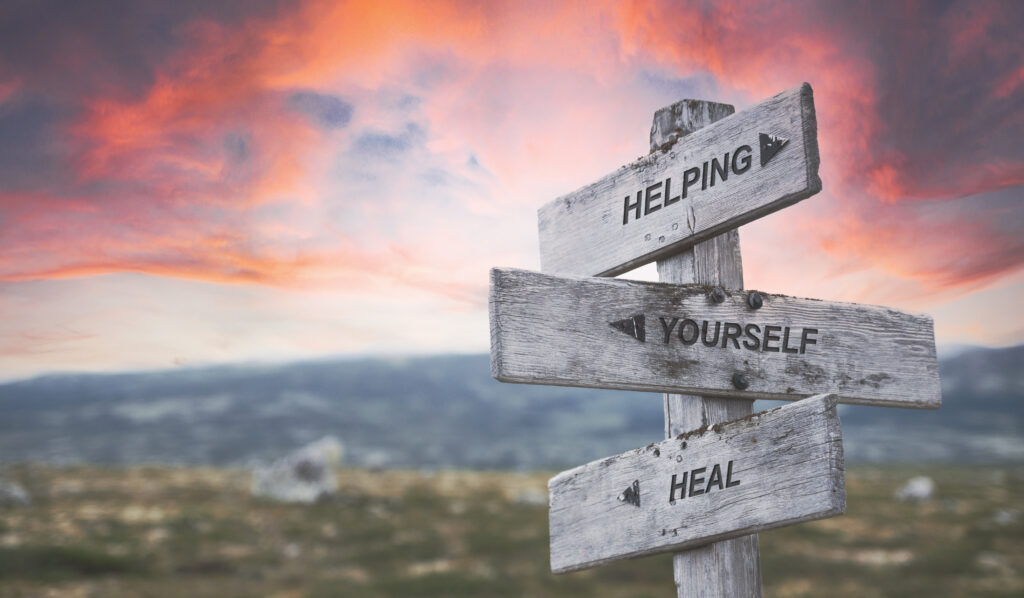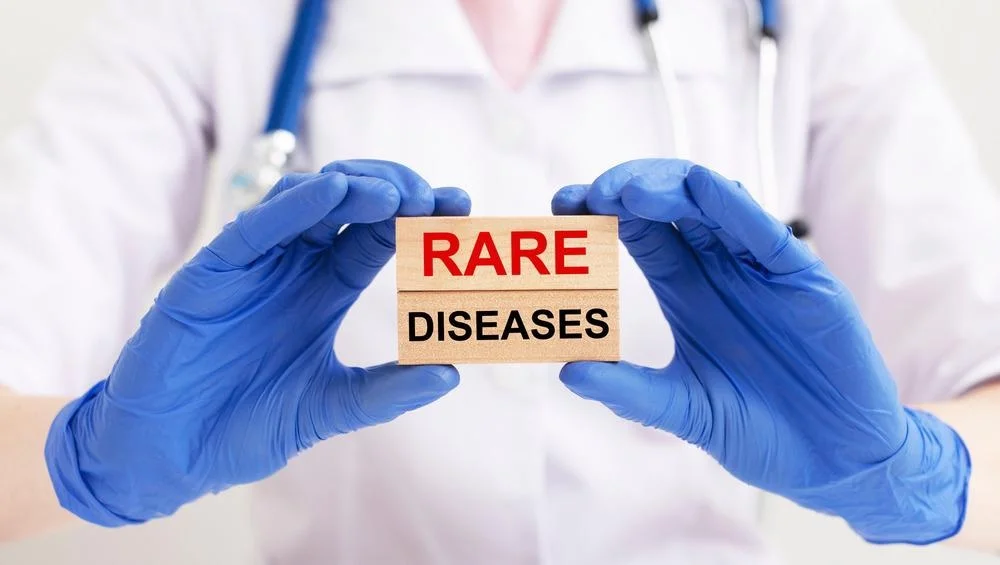“I’ve only seen this condition in textbooks,” the doctor said, as I sat across from him, listing my symptoms through tears. After years of silently enduring strange flares, fatigue, and pain, I had no idea I was living with a rare autoimmune disease. My body had finally forced me to stop ignoring the signs.
I didn’t realize I was living with a rare autoimmune disease. Like so many women—especially those of us used to caregiving—I pushed through symptoms I didn’t understand. I rationalized them. I told myself it was stress, dehydration, burnout. I was a nurse. I should’ve known better.
But the truth? I waited far too long to seek help. That diagnosis would eventually reshape my entire life.
Getting Diagnosed with a Rare Autoimmune Disease
At first, everything was vague: fatigue that wouldn’t go away, recurring ulcers in my mouth, unexplained skin lesions. I chalked it up to life. Stress. Single parenting. Too much coffee and not enough sleep.
But the symptoms grew louder. They stopped me in my tracks at work. They disrupted my daily routine. And eventually, one night, I turned to an AI tool and typed in every symptom I could think of.
One result caught my eye: Behçet’s Disease—a rare autoimmune disorder I vaguely remembered from nursing school. The more I read, the more the puzzle pieces aligned. It was a moment of shock and relief to realize I might be living with a rare autoimmune disease—something I never imagined for myself.
Sadly, this kind of late recognition isn’t uncommon—especially among women. In fact, Grammy-winning singer Muni Long recently revealed she’s been battling lupus after years of unexplained symptoms, underscoring just how often autoimmune diseases go misdiagnosed or overlooked.
I made an appointment with a primary care doctor the next day. That led to specialists, tests, biopsies, labs, and second opinions. After months of being shuffled from one appointment to the next, I finally received the diagnosis: Behçet’s Disease.
A rare, lifelong condition. With limited treatment options. And little recognition—even among some healthcare professionals.
Living in Two Worlds with a Rare Autoimmune Disease

Living with a chronic illness while working in healthcare feels like living in two separate universes. On one hand, my clinical training as a nurse helped me ask informed questions and understand lab results. On the other, I was just… overwhelmed.
I’d leave appointments forgetting what was said. I couldn’t keep track of what labs were due when. And because I knew too much, I also couldn’t stop my mind from going to worst-case scenarios.
But more than anything, I found myself grieving. Grieving the healthy, capable version of me that I used to be. I wasn’t just someone who worked in healthcare anymore—I was also a patient. One with a rare, complex condition. That shift was deeply emotional.
How a Rare Illness Redefined My Strength
We’re taught to be strong. To take care of others. To power through.
But illness teaches a new kind of strength—one that’s quiet and unglamorous. It’s the strength to say, “I need help.” To cancel plans. To rest. To explain your condition again, even when it’s exhausting.
It’s also the strength to keep going when others don’t understand.
Living with a condition most people can’t see or pronounce is isolating. You get side-eyed when you park in handicap accessible spaces. You feel judged when you “look fine” but call in sick. You feel the weight of people not believing you or worse, thinking you’re exaggerating.
I worried colleagues would think I couldn’t handle my job anymore. I felt ashamed of being sick. But in time, I realized my illness didn’t make me less, it made me more. More empathetic. More patient. More in tune with people who quietly carry invisible burdens.
Chronic Illness and Burnout Go Hand in Hand
Even when my symptoms started to improve, I didn’t feel better. I was mentally and emotionally drained.
I hadn’t realized that living with a rare autoimmune disease is a full-time job. It’s managing flares, navigating insurance, trying to explain what you’re going through, and constantly checking in with your own body. My care team helped me understand that I wasn’t just physically tired—I was burned out.
Not from work. From survival.
Navigating Work When You’re Not “Well”
Some days, I was fine. Others, I could barely get out of bed. Fatigue doesn’t wait until after your Zoom meeting. Pain doesn’t care about your deadlines.
Telling my employer about my diagnosis was terrifying. I worried they’d see me as unreliable, or worse, a liability.
But I knew I couldn’t manage alone. Thankfully, I had a few colleagues who truly showed up for me. They asked how I was doing. They offered support instead of judgment. And for that, I’m forever grateful.
Still, I know many people living with invisible illnesses don’t get that grace. In many workplaces especially in healthcare—we’re trained to put others first. To keep pushing, no matter what.
But if we don’t take care of ourselves, we break. And when that happens, who takes care of us?
Rethinking What Healing Looks Like

We tend to think healing is linear. Get sick, get treatment, get better.
But that’s not how it works with rare, chronic conditions.
Healing now looks different. It’s not a destination, it’s a practice. For me, it means:
- Taking my medications, even when I’m tired of them
- Going to therapy and unpacking what this all means
- Saying no without guilt
- Resting without apology
- Celebrating a full day without symptoms
And it means releasing the shame. Chronic illness isn’t something I caused. It’s not something I’m “failing” at managing. It’s simply part of who I am.
Finding Purpose While Living with Chronic Illness
This diagnosis changed the course of my life but it didn’t stop it.
In fact, it gave me a new purpose.
I now speak up for others with rare or invisible conditions. I advocate for better recognition, faster diagnoses, more research. I tell my story not for sympathy, but to say to others: You’re not alone. You matter. I believe you.
Because I know what it’s like to feel dismissed. I know how heavy it is to carry symptoms no one else sees. I know the power of being heard by someone who truly gets it.
To Anyone on a Similar Journey
If you’re living with a chronic illness, whether you’ve gotten a diagnosis or are still searching for answers—please hear this:
You are not alone.
You are not imagining it.
You are not too much.
You are not weak.
There is no perfect way to live with a condition that doesn’t play by the rules. Some days you’ll have energy. Some days you won’t. Both are valid. You’re doing your best and that is enough.
So rest when you need to. Ask for help. Set boundaries. Celebrate the small wins. You are still worthy, still strong, and still whole even on your hardest days.
A Different Path Is Still a Path Forward
Even if your life looks different now—if your pace has slowed, your goals have shifted, or your body feels unfamiliar—you are still you. Living with a rare autoimmune disease means learning to adjust, to listen to your body, and to move through the world with more care—but it doesn’t mean losing who you are. It may change your path, but it doesn’t erase your purpose. You’re still moving forward—just on a different, deeply meaningful journey
And that path? It’s still yours.
It’s still meaningful.
It’s still powerful.
And you are not walking it alone.

